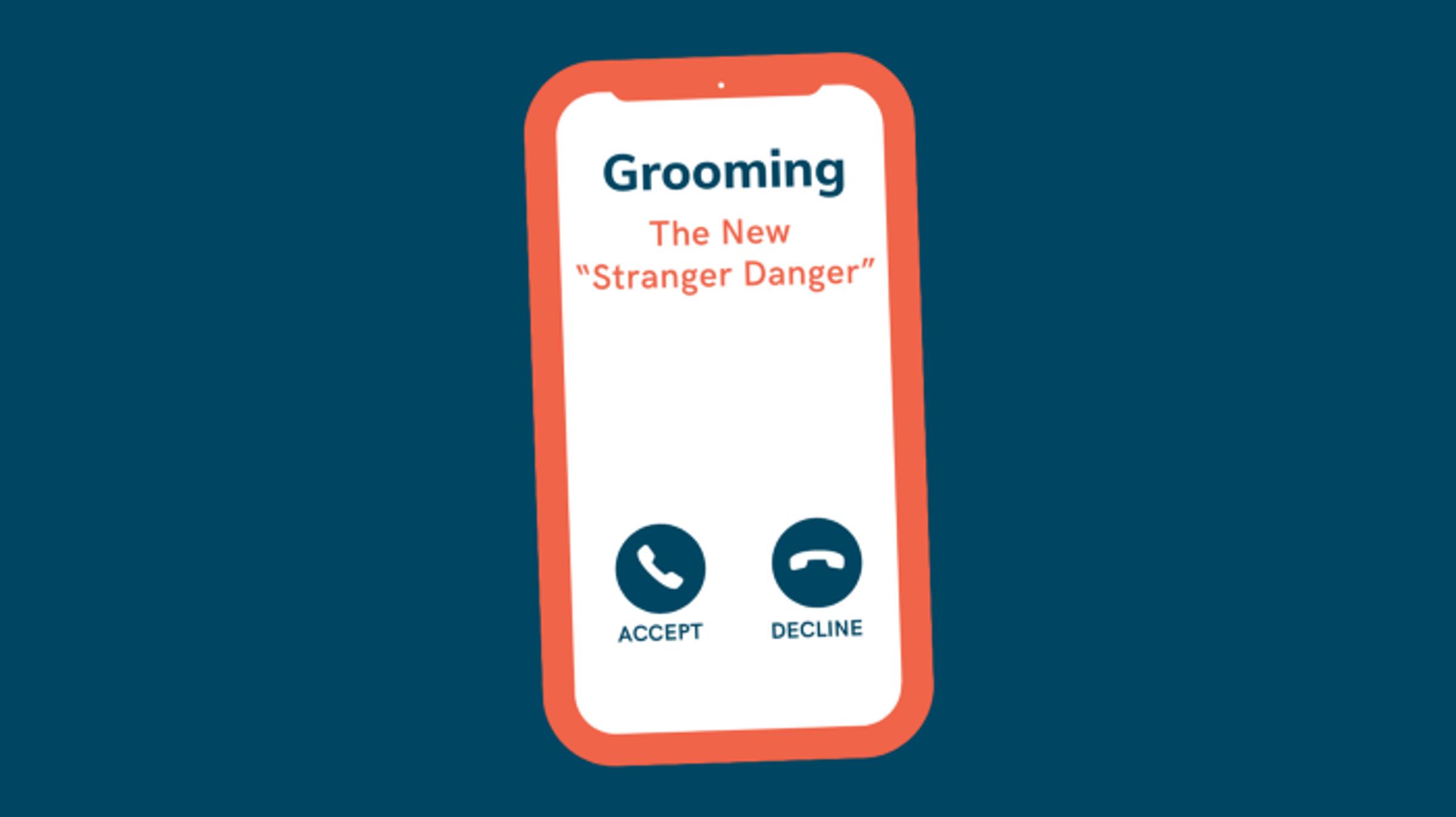Grooming & Unwanted Contact

Targeted advice is available for kids, young people or adults who may be experiencing unwanted contact. Unwanted contact is any type of online communication that your child finds unpleasant or upsetting, or that leads them into a situation where they may be unsafe. This can happen even if they initially welcomed the contact. It can come from strangers, online ‘friends’ your child has not met face-to-face, or from someone they actually know.
What is grooming?
The worst danger is ‘grooming’ — someone building a relationship with a child in order to sexually abuse them. This abuse can happen in a physical meeting, but it increasingly happens online when children or young people are tricked or persuaded into sexual activity on webcams or into sending sexual images.
55% of young people have communicated with someone they first met online.
What is online child sexual abuse?
Any sexual activity between a child and an adult is child sexual abuse. Sexual activity may be sexual intercourse, sexual touching or sexual acts that happen in person or online. It may involve coercion, force or implied force. Online child sexual abuse is any form of sexual abuse of a child under 18 that has a link to the online environment. Find out more about child sexual abuse online.
How does online grooming happen?
Grooming involves building a relationship with a child in order to later abuse them.
Groomers can use sophisticated strategies to gain your child’s trust online:
- They frequent sites that children use, sometimes pretending to be young people themselves to trick children into chatting and sharing.
- They may be adults. They may also be under 18 themselves and groom a younger child, or they could be another young person that is coerced into obtaining sexual images of other children.
- They use personal information they have gathered about a child to develop a connection with them and as the relationship grows, the child becomes comfortable sharing more information about themselves.
- They build secrecy in the relationship and aim to physically and emotionally separate a child from their family and friends.
- They test and gauge how willing a child is to engage in sexual activities. Some young people may use the internet to explore their sexuality and initially welcome and be open to online contact that facilitates this.
- They share sexually explicit material and may ask for an intimate image of the child. This can then be used as a tool to pressure the child to send more material, or to meet in person. See also our guide to sending nudes and sexting for parents and carers.
The risk of online grooming increases if your child does any of these things:
- Posts personal details like their full name or school online without using the privacy controls —this means the information is accessible to people who could use it to build an inappropriate relationship with your child.
- Accepts contactsor ‘friend’ requests from people they do not know—thisallows strangers to access their personal information and images.
- Respondsto anonymous users on apps and websites.
- Visits sites targeting adults, such as some social media dating, online chat or gaming sites—this increases the likelihood of your child being contacted by older teens or adults for sexual purposes.
- Posts ‘sexy’ photos and messagesor uses a sexually suggestive screen name —children may see this as being mature or funny, but it might attract dangerous people.
How can I protect my child?
Stay involved in your child’s digital world
- Keep up-to-date with the sites, apps and online chat services they are using, and explore them together.
- Consider whether you are comfortable with the content on these sites and the potential for contact with others, including adults.
- If you are concerned they are visiting sites they have not told you about, talk to them about your concern. As a backup, you could look at your child’s internet browsing history — but this should be a last resort. The aim is to establish trust and open dialogue.
- Try to be aware of who they socialise with in the real world and who they know only in the virtual world.
Build an open trusting relationship
- Keep communication open and calm so they know they can come to you when someone is asking them to do something that does not feel right.
- They especially need to feel comfortable about telling you if they have done something they regret and someone is pressuring them as a result.
Help your child to protect their privacy
- Guide your child to use their privacy settings on the sites they use and restrict their online information to known friends only.
- Encourage them to use a first name or nickname to identify themselves in online chats and social media, or when they are gaming. They should never disclose their phone number, address or school.
- Explain that they should not send photographs of themselves that clearly show their identity.
- For younger children, ask them not to post or text images or videos without your permission.
- Explore our guide to privacy for parents and carers.
Teach your child to be alert to signs of inappropriate contact
- Help your child recognise signs that an ‘online friend’ may be trying to develop an inappropriate relationship, even if they initially welcomed the contact. See warning signs for your child below.
- Young people may be particularly vulnerable if they are starting to explore their sexuality through their online activities. Check out our advice for parents about online pornography and the hard-to-have conversations.
- If your child is part of a sports club, you can find more advice in our Sports hub on how to recognise unsafe situations in our tailored page for parents.

